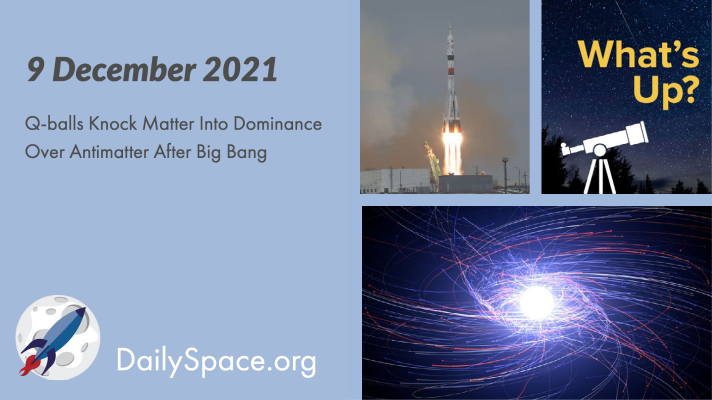
Dec 10, 2021 | Asteroids, Cosmology, Crewed Space, Daily Space, Exoplanets, Galaxies, Gemini South, Guest Interview, Rockets, ROSCOSMOS, Sky Watching, Soyuz, Spacecraft, Very Large Array
Researchers hypothesize that blobs in post-Big Bang fields of energy, known as Q-balls, could explain how matter came to dominate over antimatter in our Universe, and they plan to use gravitational waves to find their evidence. Plus, a crewed launch to the ISS features Japanese tourists, NASA selects the latest astronaut class, and What’s Up is the Geminids.
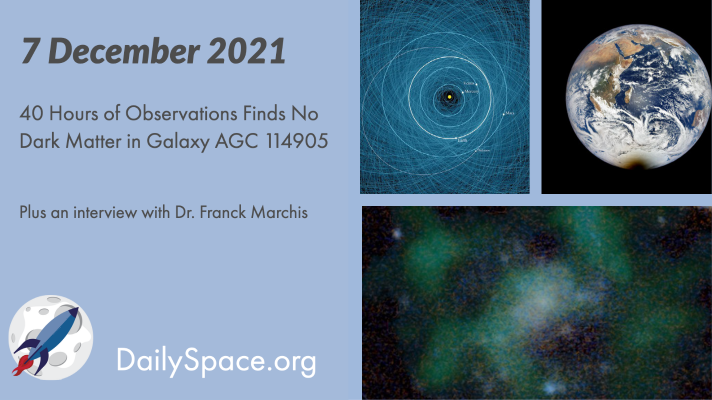
Dec 8, 2021 | Asteroids, Daily Space, Dark Matter, Earth, ESA, Galaxies, JWST, Moon, Spacecraft, The Sun, Very Large Array
Astronomers using the Very Large Array in New Mexico spent 40 hours observing galaxy AGC 114905, which seemed to have little to no dark matter in 2019 observations. The new evidence shows there is no dark matter in the galaxy at all. Plus, more Hubble and JWST updates, an eclipse over Antarctica, and an interview with Dr. Franck Marchis about citizen science.
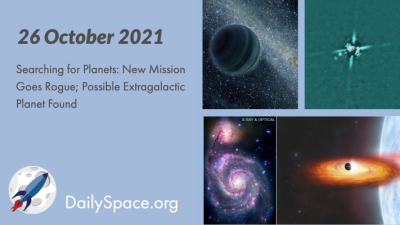
Oct 27, 2021 | Daily Space, Exoplanets, Galaxies, Guest Interview, Observatories, Saturn, Spacecraft, Supernovae
A proposed mission called the Contemporaneous LEnsing Parallax and Autonomous TRansient Assay, or CLEoPATRA, seeks to work with the Nancy Grace Roman Telescope to find rogue planets not orbiting any star. Meanwhile, a possible planet has been discovered in the Whirlpool Galaxy and could be the first planet found outside the Milky Way. Plus, an interview with Dr. Margaret Meixner, Director of Science Mission Operations for the SOFIA telescope.
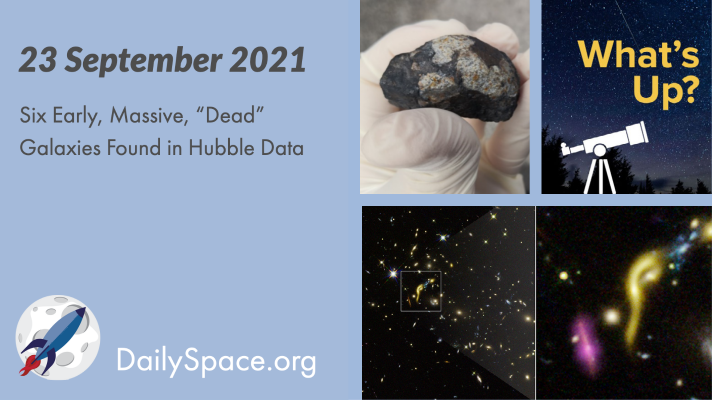
Sep 24, 2021 | Asteroids, Daily Space, Earth, Galaxies, Mars, Moon, Neptune, Observatories, Rovers, Sky Watching, Supernovae, Uranus
While searching for objects deep in the universe’s history, at about three billion years of age, researchers found six massive but “dead” galaxies in Hubble and ALMA data, a strange finding for a time period known for prolific star birth. Plus, planetary science from the EPSC2021 conference and this week’s What’s Up.
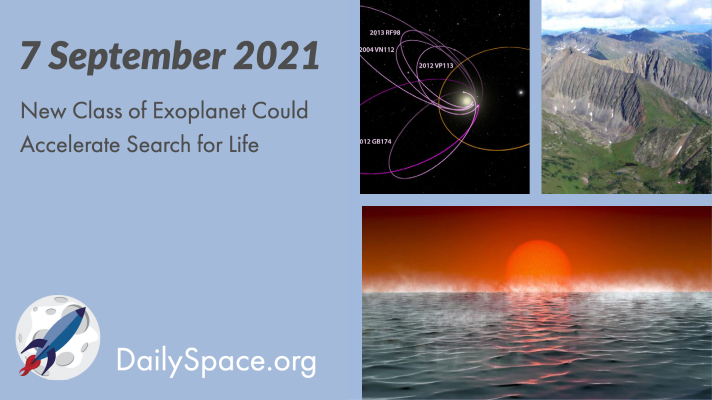
Sep 8, 2021 | Asteroids, Astrobiology, Climate Change, Daily Space, Earth, Exoplanets, Galaxies, Mars, Neutron Stars / Pulsars, Our Solar System, Perseverance, Supermassive Black Holes, Supernovae, Very Large Array
Hycean worlds have hydrogen-rich atmospheres and are covered in oceans, making them prime candidates for the search for life outside our own solar system. These worlds are also more numerous and easier to find than Earth-like exoplanets. Plus, an update on the search for Planet 9 and how volcanoes may provide a climate safety valve.
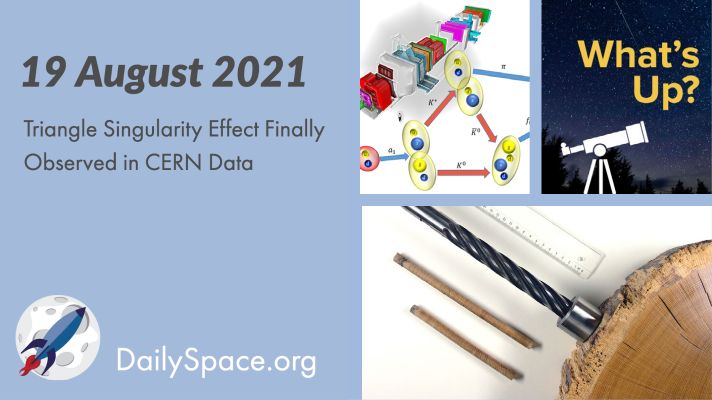
Aug 20, 2021 | Climate Change, Daily Space, Earth, JAXA, Jupiter, Mars, Milky Way, Observatories, Physics, Sky Watching, The Sun
We’re talking about particle physics today! An effect called the “triangle singularity” has been observed, and it describes how particles change identities by exchanging quarks. Plus, climate change news, and in this week’s What’s Up, Jupiter is at opposition.








 We record most shows live, on Twitch. Follow us today to get alerts when we go live.
We record most shows live, on Twitch. Follow us today to get alerts when we go live.